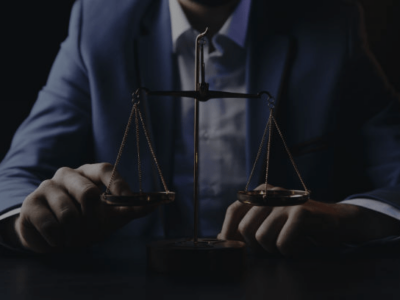What Are the Usual Cases Taken Care Of by an Eviction Attorney in Tenant Disputes?
Eviction attorneys play an important function in attending to a variety of occupant disagreements that can develop in rental contracts. These specialists browse intricate lawful structures to stand for both proprietors and lessees, making certain that all events recognize their legal rights and responsibilities. Recognizing the subtleties of these conflicts can light up the broader implications for tenant rights and proprietor responsibilities.
Non-Payment of Rent
Non-payment of lease is a widespread issue that can lead to intricate legal conflicts in between renters and proprietors. If the renter does not conform, the landlord may submit for expulsion in the suitable court.
In lots of territories, the legal framework surrounding non-payment of rental fee is designed to secure both events. Tenants might have defenses available, such as declaring unliveable living problems or inappropriate notification. However, proprietors must follow stringent procedures mandated by regulation, including offering appropriate notification and submitting the essential paperwork (eviction attorney miami).
An expulsion attorney plays a crucial function in navigating these disagreements. For lessees, lawful representation can give understanding into possible defenses and help bargain positive results.
Lease Violations
Lease offenses represent a significant problem in landlord-tenant connections, as they can lead to disagreements and prospective expulsion procedures. These violations take place when renters fall short to stick to the terms outlined in their lease contracts. Typical instances include unapproved subletting, failure to preserve sanitation, keeping pet dogs without consent, or participating in disruptive habits that influences other occupants.
Landlords have a lawful responsibility to resolve these infractions without delay - eviction attorney miami. Generally, they will certainly release a written notification to the lessee, detailing the certain violation and offering a specified timeframe for correction. If the lessee fails to conform, the proprietor may start expulsion proceedings, which typically demands lawful treatment
Expulsion attorneys play an essential role in these scenarios by ensuring that the eviction procedure sticks to regional legislations and policies. Additionally, renters facing claims of lease offenses might seek legal advise to dispute the insurance claims or work out terms to avoid expulsion.
Wrongful Eviction Claims
Wrongful expulsion insurance claims are an important element of landlord-tenant law, addressing scenarios where an occupant is gotten rid of from a rental home without legal reason. Such claims usually emerge when property managers fall short to adhere to appropriate lawful treatments during the eviction procedure, including not supplying the required notification or conducting expulsions without a court order.
The legal structure surrounding wrongful eviction differs by jurisdiction yet typically gives renters with the right to dispute an eviction if it does not have a legitimate reason or if due procedure was not observed. Common grounds for wrongful expulsion claims consist of retaliatory actions by the proprietor, eviction based upon discriminatory factors, or expulsion for reasons that breach neighborhood or state policies.
In seeking a wrongful eviction case, renters might look for different solutions, including reinstatement to the rental home, problems for shed personal belongings or emotional distress, and legal costs. An eviction legal representative plays an essential duty in these cases, aiding renters in collecting evidence, navigating court treatments, and supporting for their legal rights.
Understanding the subtleties of wrongful eviction insurance claims is vital for both this post landlords and lessees to make certain conformity with the regulation and to secure their particular rate of interests within the rental connection.
Tenant Rights Issues
Several occupants may be unaware of their civil liberties, which can bring about exploitation and unjust treatment by landlords. Recognizing occupant rights is essential for keeping a fair rental relationship and shielding oneself from prospective abuses. Usual occupant legal rights include the right to a habitable living setting, protection versus discrimination, and the right to privacy.
Tenants can request essential repair services and maintenance, and landlords are lawfully obligated to resolve these problems promptly. In addition, renters are protected under reasonable housing regulations, which restrict discrimination based upon race, gender, religion, and various other factors.
In addition, renters deserve to privacy, indicating property owners can not get in the rental system without proper notice, other than in emergency situations. Numerous occupants are view website additionally unaware of their civil liberties relating to down payment, including the need for property owners to return deposits within a details duration and provide itemized deductions for any kind of problems.
When disputes occur over occupant civil liberties, an eviction attorney can give essential guidance and representation to help renters assert their legal rights and browse complicated legal scenarios. Awareness of these civil liberties encourages renters to stand against unjust methods and secure their housing security.
Residential Property Damages Conflicts
Building damages conflicts typically occur between lessees and property managers, complicating the rental relationship web link and possibly causing legal activity. These conflicts usually center around cases of damages sustained throughout the tenancy that exceed regular deterioration. Landlords might look for compensation for fixings they believe are the result of occupant carelessness, while lessees might dispute such claims, saying that the damages were pre-existing or a result of variables past their control.

In most cases, arbitration may fix disputes without turning to lawsuits, conserving both events time and resources. If unresolved, these disagreements can intensify into expulsion proceedings, emphasizing the significance of lawful representation in protecting the civil liberties and rate of interests of both landlords and occupants.
Conclusion
Expulsion lawyers play a vital role in fixing lessee conflicts by addressing different usual situations, consisting of non-payment of rent, lease offenses, wrongful eviction insurance claims, lessee rights problems, and home damages disputes. Their knowledge promotes a better understanding of lawful civil liberties and responsibilities for both property managers and lessees. By navigating the complexities of expulsion procedures and supporting for fair treatment, expulsion legal representatives contribute substantially to keeping justice within the rental housing system.
If the renter does not abide, the landlord may file for eviction in the proper court.

Additionally, tenants encountering claims of lease violations might seek legal advice to object to the cases or negotiate terms to stay clear of expulsion. Landlords may seek compensation for repair work they believe are the result of lessee negligence, while renters may dispute such insurance claims, suggesting that the problems were pre-existing or a result of aspects past their control.
Eviction legal representatives play a critical function in solving occupant disagreements by attending to numerous typical cases, consisting of non-payment of rental fee, lease violations, wrongful expulsion cases, renter civil liberties issues, and property damage disagreements.